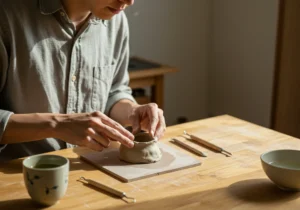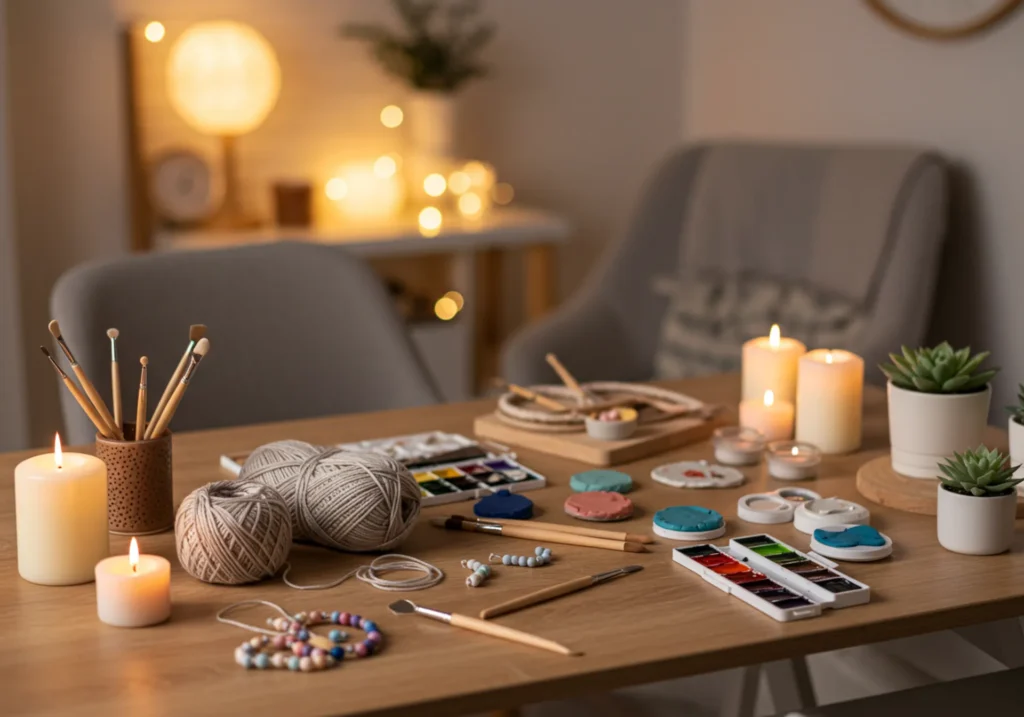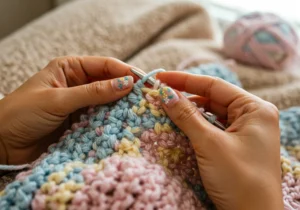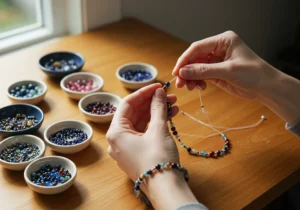In today’s fast-paced world, stress and burnout are all too common. While self-care routines often include exercise, meditation, or journaling, a new trend is gaining momentum: Emotional Support Crafts. These are simple, mindful DIY projects designed to help you slow down, reconnect with yourself, and create something beautiful in the process.
Emotional Support Crafts are more than just hobbies — they serve as therapeutic outlets that calm the mind, reduce anxiety, and provide a creative escape. According to Michaels’ 2025 crafting trend report, these relaxing projects are among the top creative movements this year, offering people an easy, accessible way to improve their mental wellness.
What Are Emotional Support Crafts?
Emotional Support Crafts focus on repetitive, soothing activities that are both simple and rewarding. Unlike ambitious DIY projects, these crafts are intentionally low-pressure, making them approachable for all skill levels. The goal is not perfection, but presence.
Examples include:
- Knitting or Crochet: The rhythmic repetition of stitches is both meditative and satisfying.
- Clay Work: Rolling, shaping, and smoothing clay engages the senses and grounds you in the moment.
- Beadwork or Jewelry Making: Stringing beads into patterns brings focus and mindfulness.
- Watercolor Painting: Gentle brushstrokes and blending colors can be deeply calming.
- Paper Crafts: Folding, cutting, or collaging paper provides tactile comfort.
Why Crafting Works as Self-Care
Crafting engages both the hands and the mind. This dual engagement helps shift focus away from stressors and into the present moment. According to Psychology Today, creative activities can trigger a state of “flow” — a deeply immersive mental state associated with reduced stress and improved well-being.
Other benefits include:
- Stress Reduction: Focusing on a simple task calms racing thoughts and lowers anxiety levels.
- Improved Mood: Completing a craft project sparks a sense of accomplishment.
- Enhanced Mindfulness: Crafts require attention to detail, gently training the mind to stay in the present.
- Connection: Group crafting sessions foster social support and shared joy.
How to Start Emotional Support Crafting
1. Create a Calming Environment
Set aside a small, clutter-free space for crafting. Add soft lighting, a cozy chair, and perhaps a candle or essential oil diffuser. This signals to your brain that it’s time to slow down and relax.
2. Choose Accessible Projects
Pick crafts that don’t require advanced skills or expensive materials. For beginners, knitting a scarf, rolling clay beads, or painting simple watercolor washes are great entry points. The simpler the project, the more meditative the experience.
3. Use the Right Supplies
You don’t need to invest heavily in materials. Start with affordable basics: a set of yarn and needles, air-dry clay, or watercolor paper and paints. Local craft stores or online retailers like Michaels offer beginner-friendly kits tailored to emotional support crafting.
Popular Emotional Support Crafts to Try
Knitting and Crochet
These age-old crafts are seeing a resurgence as mindfulness practices. The repetitive motion is grounding, and the projects can be as simple as a beginner’s scarf or dishcloth. Plus, you’ll end up with something cozy and useful.
Clay Creations
Working with clay is tactile and sensory, making it excellent for stress relief. Try making simple bowls, beads, or small sculptures with air-dry clay. The process itself is just as valuable as the finished product.
Beaded Jewelry
Stringing beads into necklaces, bracelets, or keychains is both relaxing and creative. Play with colors and patterns while enjoying the quiet focus the process demands.
Watercolor Art
Watercolor is forgiving and flowy, making it perfect for emotional support crafting. Start with abstract washes, blending soothing shades of blue, green, or lavender. There’s no wrong way to paint with watercolors — it’s all about expression.
Tips for Making Crafting Part of Your Self-Care Routine
- Schedule It: Treat crafting time as a self-care appointment.
- Stay Present: Focus on the textures, colors, and motions rather than the outcome.
- Craft in Community: Join local workshops or online groups to share progress and inspiration.
- Celebrate Small Wins: Even a finished bookmark or painted card can bring joy and pride.
Incorporating Crafts into Your Home
Emotional Support Crafts aren’t just therapeutic — they can also enhance your home. Displaying your creations reminds you of the calm moments you’ve cultivated. Style your finished crafts alongside plants, candles, or books to create small sanctuaries throughout your space.
Final Thoughts
Crafting for calm isn’t about skill or perfection — it’s about presence, peace, and self-expression. By embracing Emotional Support Crafts, you invite balance into your daily routine while creating beautiful reminders of your care for yourself.
Looking for more creative ideas? Visit my post on Styling Your Shelves with Purpose to learn how to display your crafts. Or, if you’re craving comfort in another form, check out Homemade Bread for Beginners for a grounding kitchen project.



